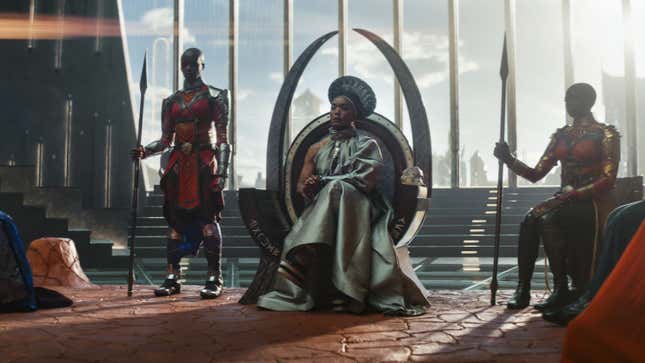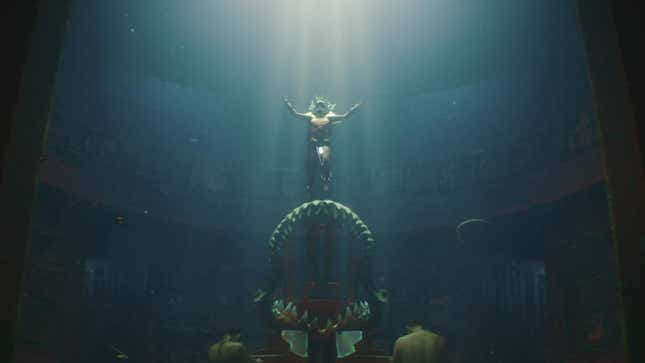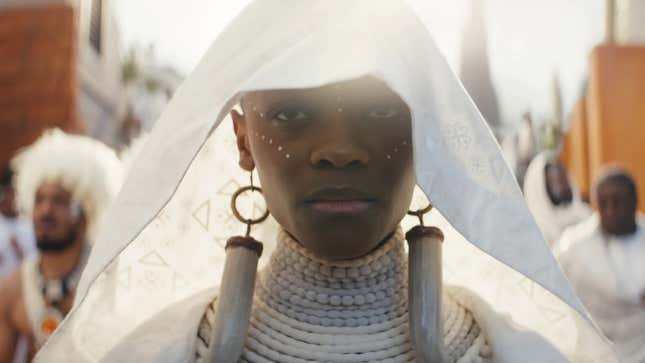‘Wakanda Forever’ Navigates Grief, Mother-Daughter Relationships, and Hot, Radical Villains
The Black Panther sequel is an homage to Chadwick Boseman with all the action and CGI wonders that people expect from Marvel.
EntertainmentMovies

I’m extremely thankful I got to attend a screening of Wakanda Forever earlier this week because there’s a good chance if I hadn’t, I might not have been able to see it at all. Across Los Angeles, for at least the last week, theaters have been booked for the opening night and weekend of the Black Panther sequel, and for good reason: Wakanda Forever is the most highly anticipated Marvel project of the year, and one of the most highly anticipated movies of the year, period. Its premiere also comes just two years after the late, titular Black Panther, Chadwick Boseman, died from colon cancer in 2020.
Wakanda Forever is both an homage to Boseman’s legacy and an answer to the question of what would come next for Wakanda after Boseman’s death. The movie doesn’t shy from off-screen realities—it opens with Shuri (Laetitia Wright), King T’Challa’s (Boseman) little sister and a Tony Stark-like science genius, desperately trying to save her brother’s life, only to come up short in the final seconds. The whole kingdom grieves in an equal-parts visually beautiful and utterly heartbreaking funeral. And, even as Shuri and her mother, Queen Ramonda (Angela Bassett,) continue to grapple with the loss of T’Challa, life goes on—in the form of a sudden and colossal threat to Wakanda, unsurprisingly spawned from the U.S. military’s meddling. Classic!
-

-

-

-

-

-

-

-

-

-

-

-

-

-

-

-

-

-

-

-

-

-

-

-

-

-

-

-

-

-

-

-

-

-

-

-

-

-

-

-










































